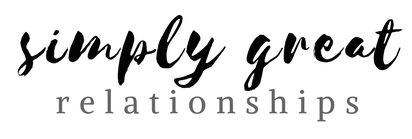During the holidays, there is a significant increase in invitations and expectations from friends and family. It becomes even more important than usual to check in with yourself and your partner on how you’re feeling, what you want, and what you need.
Without this check in, you’re likely to end up feeling overwhelmed, overbooked, and resentful. Your physical and emotional energy may become depleted and you’ll look back on this time of year with relief that it’s finally over. (Not the type of holiday experience we’d want to have).
This is where the boundaries come into play.
There are a few different factors to consider when deciding where and how to spend your time this holiday season. We’ve identified three types of boundaries:
Physical Boundaries | These are boundaries around where you will and won’t go and how you will or will not accept physical touch (for yourself and your children).
Emotional Boundaries | These are boundaries around the ways in which you will connect with others. For example, what topics you will and will not discuss, how long you’ll spend connecting with particular people, and the types of emotional experiences you’re open to having.
Energetic Boundaries | These are boundaries around your physical, emotional, and mental energy. They involve taking into account how tired you are, how emotionally drained or energized you feel when interacting with certain people, and how much mental bandwidth you have for supporting others.
In this week’s episode, we’re going deeper into each of these three types of boundaries, what they look like, how to evaluate which ones you need to enact, and how we apply these in our lives.
Disclaimer:
Silveron Productions LLC and Nassau Wellness Marriage and Family Therapy PLLC do not hold itself out to be your psychologist, psychiatrist, psychotherapist, or social worker. Our content is provided for informational and educational purposes only and is not to be perceived or relied upon as medical or mental health advice, diagnosis or treatment. Do not use our content in lieu of professional advice given by qualified medical and mental health care professionals and do not disregard professional medical or mental health care advice or delay seeking professional advice because of information you have received from us. Always seek the advice of your physician or other qualified mental health provider with any questions you may have regarding a medical condition or mental disorder. If you think you may have a medical or mental health emergency, call your professional caregiver or 911 immediately. We do not recommend or endorse any specific tests, physicians, psychologists, psychiatrists, psychotherapists, social workers, products, procedures, opinions, or other information that may be mentioned in our content. By viewing our content, you acknowledge and agree that the following warnings and disclaimers apply to all of our content and agree to indemnify and hold Nassau Wellness and all content participants for any and all losses, injuries, and damages resulting from any and all claims that may arise from your use or misuse of the content.
By viewing our content, you further acknowledge that you are doing so voluntarily and at your own risk, and that you are solely and personally responsible for your choices, actions, and results, now and in the future. You accept full responsibility for the consequences of your use or non-use of any information provided in our content. Nassau Wellness is not liable for any advice or information provided in our content, all of which is provided on an “as-is” basis. No warranties, either express or implied, are made regarding the information we provide, and Nassau Wellness makes no representations about the accuracy or the suitability of our content. Opinions and other statements expressed by third-parties are theirs alone.


